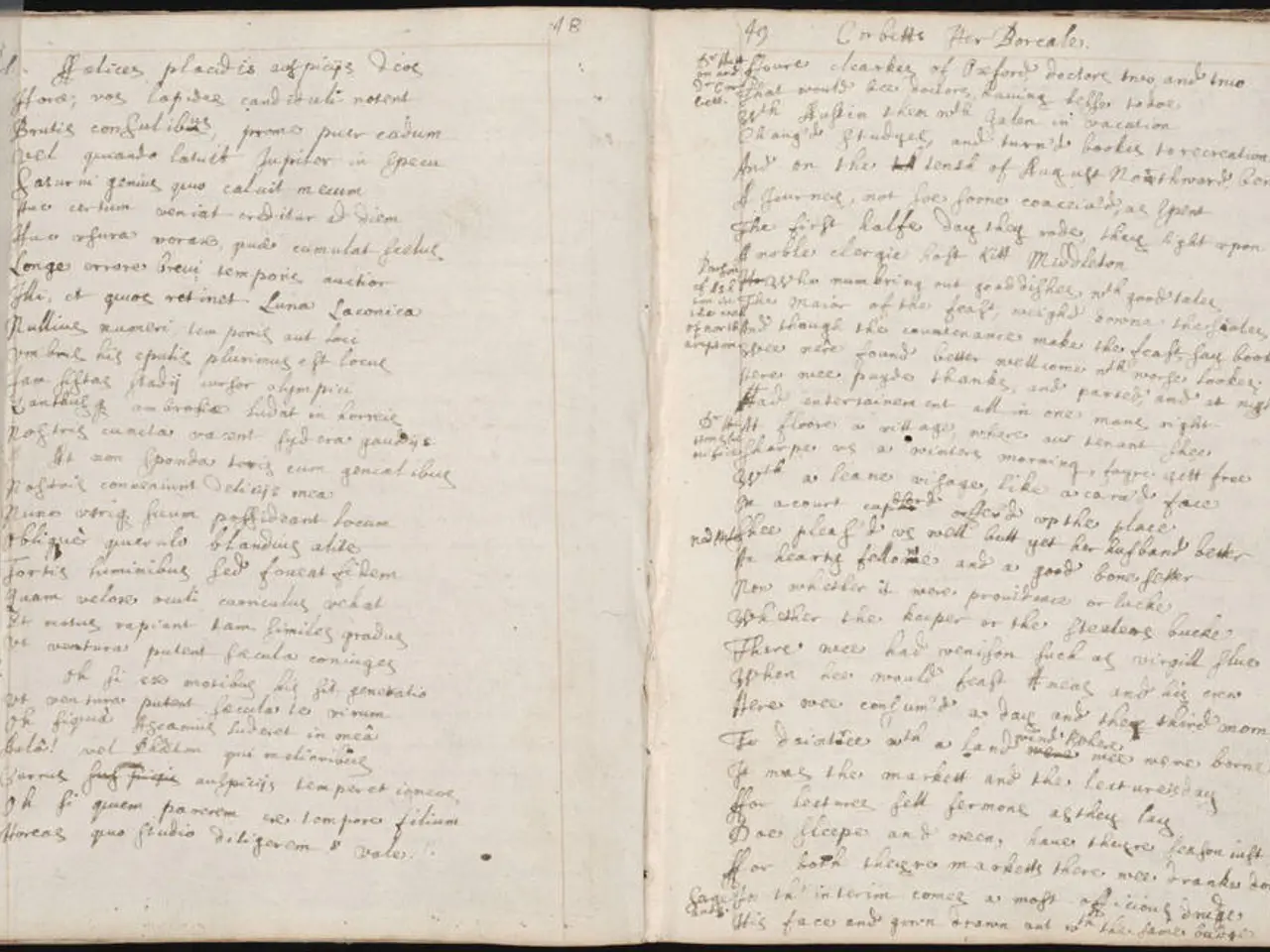Embracing Initial Concepts Fervently: Staying Faithful to Initial Thoughts
In the world of rigorous scholarship, time is a precious commodity. For Elise Freeman, the Humanities Correspondent, committing to her initial ideas, or what she calls her "nuggets," has proven to be a game-changer in her research process.
Freeman, who recently went through this process while picking the topic for her fall Junior Paper (JP), believes that trusting her intuition and investing in her nugget early on can lead to more fruitful results. The nugget, she explains, could be a tidbit from a conversation, a theme from class, or a note made over the summer about a potential research topic.
This approach, while not directly discussed in the search results, reflects a common principle in scholarly work: early focus on well-formed ideas accelerates progress by creating a strong trajectory to build upon. It improves both time management and outcomes in research projects.
By quickly identifying and investing in these nuggets, Freeman could generate more meaningful findings efficiently. She honed her research questions and methods around core promising ideas, leading to clearer, more impactful results. Her work was grounded in a coherent conceptual foundation rather than scattered exploratory attempts that may not yield substantive progress.
This commitment to her nugget saved Freeman time and led to more naturally flowing and fruitful brainstorming sessions. For instance, her initial idea for her JP was to pursue a topic in media theory, specifically focusing on the comments made by Jean Baudrillard on advertising. This choice, she found, allowed her to delve deeper into a subject she found intriguing, as she both found reason in and disagreed with Baudrillard's comments, and because advertising is a potential career path for her.
When faced with challenges, such as struggling with the Junior Paper, Freeman advises reversing to the start. Ignoring the nugget and searching for other topics often leads to less satisfactory results, and the author often circles back to their initial idea. This strategy has been integral to Freeman's research experience at Princeton.
While the article does not provide specific details about a guide to Independent Work Abroad, it does offer valuable insights for the final push on the Junior Paper. By trusting your intuition and committing to your nugget, you can save time, produce more fruitful results, and create a coherent conceptual foundation for your research.
Investing in her initial ideas, or "nuggets," during her Independent work on the Junior Paper has been essential for Elise Freeman's personal-growth and education-and-self-development. By honing her research around these core promising ideas, she was able to achieve more independent work that led to clearer, more impactful results and a coherent conceptual foundation.




